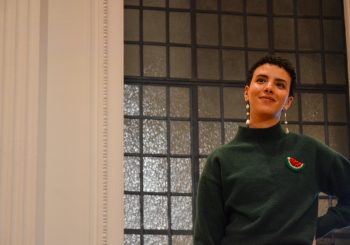Eighteen year old Egyptian Fatma* got married to a Jordanian rich man in the hope of a better life. On going back to his country, she was shocked by the reality that faced her. She found that she was one of the newlyweds who are used for begging, prostitution, or dancing in nightclubs rather than entering the more conventional married lifestyle she had expected. As much as Fatma was scared of working in those fields, she was afraid to tell her family. The husband treated her as a prostitute, and his family beat her.
The 2014 case is not uncommon. With economic hardship and poor living conditions in Egypt, some families make arrangements to marry their daughters off to wealthy men from other Arab countries, unaware of what happens across the borders. This type of trafficking is one of the main issues addressed by the Center for Egyptian Women’s Legal Assistance (CEWLA).
Established in 1995 to work on legal awareness and assistance, CEWLA has spent more than twenty years intervening for women’s legal rights.
“Poor people do not have access to justice, along with lack of awareness,” said Azza Soliman, co-founder and head of CEWLA. “When we would ask if people knew what the “dostour” [constitution] is, they would think we are referring to Fathy Soroor, [a former head of parliament].”
CEWLA works on spreading legal awareness, through introducing citizens to the constitution as well as international conventions. The organization uses presentations, workshops, movies and other means to decode human rights and women’s rights for citizens at the grassroots. As the Egyptian saying goes, “Law does not protect the ignorant”, but Soliman states that nobody has worked on eradicating this ignorance. She adds that people need to learn their rights, use them, and change policies.
CEWLA also works on changing laws, revealing flaws in both the laws and their application within the judiciary system, and bringing discrimination under the spotlight. One of the laws CEWLA succeeded in changing is the childrens’ law, including court recognition of DNA proof.
In 1997, CEWLA did the first research about honor crimes in Egypt. One of the findings was that article seventeen of the criminal law is an obstacle, stipulating that the judge has the power to reduce punishments. For example people instead of getting twenty-five years in prison for preemptive murder, they would get a year with suspended sentence on the pretext that the victim “…’strayed from norms and traditions,'” Soliman explained. “This highlights the question of what is the role of the judiciary in eliminating obsolete traditions in Egypt,” she stated.
The Egyptian judiciary system does not take psychological harm into consideration. It is ignorant of how to deal with it and understand its implications. A woman would go to file a complaint against her husband for beating her, the officer would tell her “‘You probably are driving him nuts,'” narrated Soliman.
“People who are supposed to help a woman become a whip to her back,” she added.
Meanwhile, the predominant culture finds that women regarding it as shameful to expose these troubles in front of a judge and complain that, for example, their husbands are committing adultery. One of the psychological consequences is women refusing sexual relations. Such a refusal also sometimes occurs after a bad first sexual experience, whether intentional, when men want to use their so-called ‘rights as husbands’, or not. Also, belittling wives, or viewing women as a mere ‘baby machine,’ have dire implications.
Yet instead of analyzing and addressing the root problem, blame is placed on women.
“Some women reach the stage of such a lack of self confidence that they cannot simply walk on the streets,” CEWLA’s head underscored.
Fatma had better luck than other women. On leaving and going back to her family, Fatma’s husband came to Egypt and threatened them. At that point, CEWLA intervened and protected the girl and her family. They divorced the girl, sheltered her and rehabilitated her.
The eighteen year-old later got married and now has a child, after never imagining she could have a sex life after what happened to her.
With offices in seven governorates, such as Qena and Tanta, CEWLA aims at helping as many communities as possible; to make sure the lives of women like Fatma take a turn for the better.
*Name has been changed to protect her privacy.







Comments (0)